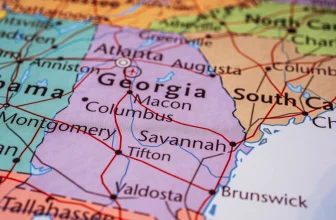
For the already booming hemp industry, the potential for growth just got a little bigger.
A letter from the National Hemp Association (NHA) to Congress is requesting a $1 billion budget reconciliation to support hemp research and innovation. Addressed to House representatives Nancy Pelosi (D), John Yarmuth (D), Jason Smith (R), and Kevin McCarthy (R), it proposes an amendment that could help boost the industry following the 2018 Farm Bill, which legalized the plant.
According to the letter, the money would “empower hemp farmers, processors, and related businesses to compete globally, sequester unprecedented amounts of carbon, remediate contaminated soil and water, provide funding and jobs to traditionally disadvantaged members of the farming community, and much more.”
The Specifics of the Request
$1 billion is no small sum. The NHA breaks down the request into several components:
- $400 million: Representing 40% of the total amount, this would be split into $100 million allocations to Oregon, New York, Florida, and Michigan, which the NHA considers regional “super sites.”
- $120 million: The proposal would allocate this money to historically underserved farmers.
- $380 million: This portion of the proposed amount would be divided and distributed according to the acreage of hemp farms. $38 million of it would go toward hemp industry education, regulation, and enforcement among states, tribes, and territories. These funds would also be available in the form of grants up to $3 million each. Farmers could apply for such grants to purchase equipment for harvesting and cultivation, while manufacturers could use the funds for equipment used to decort, degum, extract, mold, press, pack, can, flavor, or perform other actions to create a product.
Motives for Approving the Budget Reconciliation
Before signing off on a $1 billion change to their spending plan, Congress will need to understand the objectives and effects of the move.
In the letter, the NHA and representatives from other hemp organizations write, “we sincerely ask that you consider hemp. Our industry is nascent but can achieve the greatness of other agricultural crops, and perhaps more still, given parallel levels of support to create infrastructure and develop markets. With adequate, specifically applied resources, farmers shall possess a level playing field to move the hemp industry to the next level.”
In a press release, Geoff Whaling, the NHA’s chairman, framed the budget proposal as a boon to America’s overall global leadership position. “History confirms that the world looks to America to lead change, be it industrial, cultural, or environmental.”
The last of these categories, environmental, holds particular sway in the argument for increased hemp funding. Whaling places particular weight on hemp’s promise as a carbon sequestration solution, writing that America’s leadership role “is more true today than ever before, as we look to combat the global climate crisis affecting humankind.”
The NHA believes that many of the innovations to solve the climate crisis are likely to come from America — and furthermore, that they will involve technologies based on plants. “Hemp, America’s newest commodity crop, will be at the forefront of this regenerative economic and social shift, helping create jobs, clean our soil and air, and introduce sustainable new products once only dreamed about.”
For context, note that one acre of hemp sequesters roughly 10 tons of carbon per year, which is more than the average household emits annually.
Other Hemp Developments
The U.S. Department of Agriculture’s hemp regulations took effect in early spring, but they are still expressing interest in learning how to regulate. They will be conducting a 20,000-person survey of hemp farmers to better understand the state and needs of the industry.
The USDA also recently accepted Colorado’s hemp plan, helping that state cement its reputation as a leader in hemp cultivation. In January, the USDA also met with stakeholders in the hemp industry to learn about the realities of the new industry. According to Patrick Atagi, chair of the National Industrial Hemp Council, the talk was highly productive.
If the NHA secures this funding, it could lead to meaningful advances in the hemp industry, leading to a wide range of benefits to consumers and businesses alike — and, to the NHA’s point on climate change, to humanity at large.
[ Read More: Biden Administration Proposes Changes to Make Marijuana Research Easier ]






